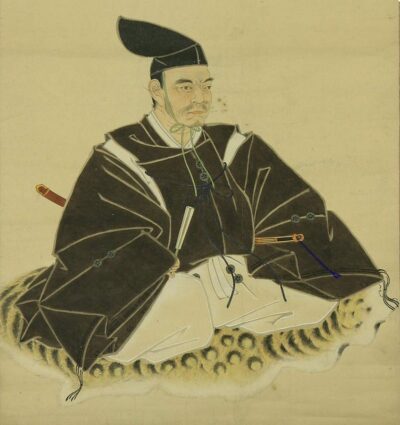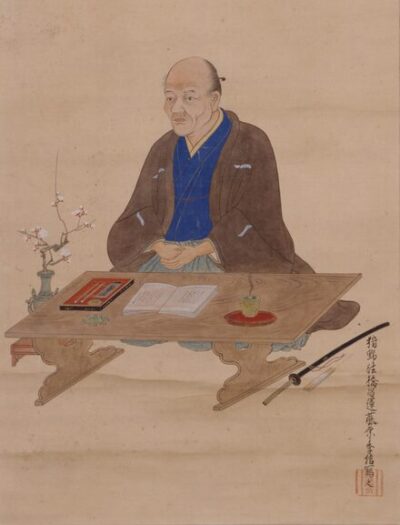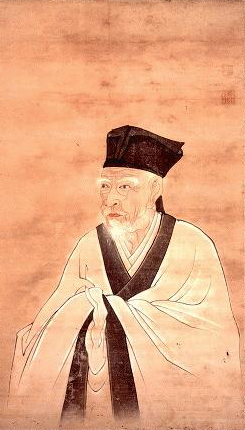キング牧師 「私には夢がある」が変えた世界! 公民権運動の軌跡

Martin Luther King Jr.’s “I Have a Dream” that Changed the World! Tracing the Civil Rights Movement
イントロダクション
マーティン・ルーサー・キングは、アメリカ公民権運動の象徴的な指導者であり、非暴力抵抗を通じて人種平等を訴えた歴史的人物です。
彼の名を世界に知らしめた「I Have a Dream」のスピーチは、1963年にワシントンで行われ、数十万人の聴衆に対して、人種の壁を越えた平和と調和のビジョンを力強く語りました。
この記事では、キング牧師の生涯と公民権運動の歩みをたどり、彼が残した深い足跡を探ります。
Introduction
Martin Luther King Jr. stands as an iconic leader of the American civil rights movement, advocating for racial equality through nonviolent resistance.
His historic speech “I Have a Dream,” delivered in Washington in 1963, became globally renowned, passionately articulating a vision of peace and harmony transcending racial divides to an audience of hundreds of thousands.
This article traces the life of Reverend King and the journey of the civil rights movement, exploring the profound impact he left behind.
マーティン・ルーサー・キングとは?その生涯と影響
マーティン・ルーサー・キング・ジュニアは、アフリカ系アメリカ人公民権運動の象徴的人物であり、非暴力抗議の先導者として知られています。
彼の最も有名な演説「I Have a Dream(私には夢がある)」は、1963年8月28日にワシントンD.C.で行われ、人種の壁を超えた平等と正義の重要性を訴えました。
キング牧師は1929年1月15日にジョージア州アトランタで生まれ、神学者の父と教師の母のもとで育ちました。
彼の幼少期は、南部の厳しい人種差別の中で形成され、これが彼の生涯を通じて公民権活動への情熱を育む原動力となりました。
1955年にモンゴメリー・バス・ボイコットを指導したことで全国的な注目を集め、以降、非暴力の原則に基づく抗議活動を展開しました。
彼は1964年にノーベル平和賞を受賞し、その功績は今日でも多くの人々にインスピレーションを与え続けています。
キング牧師は1968年4月4日に暗殺されましたが、彼の遺志は公民権法の成立や、毎年1月に祝われるマーティン・ルーサー・キング・デーなど、多くの形で受け継がれています。
彼の生涯と影響は、アメリカの歴史だけでなく、世界中の平等と自由を求める運動においても不可欠なものとなっています。
アフリカ系アメリカ人のリーダー、マーティン・ルーサー・キング・ジュニアの紹介
マーティン・ルーサー・キング・ジュニアは、平等な社会を目指し、非暴力の理念のもとにアフリカ系アメリカ人公民権運動を牽引した偉大な指導者です。
1929年にジョージア州アトランタで生まれたキング牧師は、キリスト教の深い信仰と社会正義への強いコミットメントを胸に育ちました。
彼の父親も牧師であり、若きマーティンは父の影響を受けながら、差別に立ち向かう勇気と説得力を身につけていきました。
キング牧師は、モンゴメリー・バス・ボイコットや「I Have a Dream(私には夢がある)」と称される歴史的な演説で知られています。
1963年、ワシントンD.C.のリンカーン記念堂で行われたこの演説は、人種の壁を超えた平和な共存を訴えるもので、世界中に感動を呼びました。
彼の強いリーダーシップと平和への献身は、公民権法の成立に大きく寄与しました。
残念ながら、キング牧師は1968年に暗殺されてしまいましたが、彼の遺したメッセージは今もなお多くの人々に影響を与え続けています。
アフリカ系アメリカ人の権利だけでなく、すべての人々の平等を求める彼の理念は、社会正義を追求する現代の運動においても重要な指針となっています。
マーティン・ルーサー・キング・ジュニアは、ただの歴史上の人物ではなく、今日も私たちの心に生き続ける英雄です。
キング牧師の生家と幼少期の背景
マーティン・ルーサー・キング・ジュニアはアメリカのアフリカ系アメリカ人公民権運動の象徴的なリーダーであり、その非暴力の哲学と圧倒的な演説力で知られています。
彼の生家はジョージア州アトランタにあり、1929年1月15日に生まれました。
キング牧師の家庭は深い宗教的信念に根ざしており、父親もまた有名な牧師でした。
幼少期から彼は人種差別という社会の厳しい現実に直面していましたが、家族からは教育の重要性と自尊心を持つことが強調されていました。
彼の有名なスピーチ「I Have a Dream(私には夢がある)」は1963年にワシントンD.C.で行われた行進で披露され、アメリカ社会に大きな影響を与えました。
このスピーチは、彼が幼少期に育った環境と彼の家族が抱いていた希望と平等への願いが反映されていると言えるでしょう。
キング牧師は、自らの背景を力に変え、アフリカ系アメリカ人の権利向上のために生涯を捧げました。彼の遺産は今も多くの人々にインスピレーションを与え続けています。
Martin Luther King Jr.: His Life and Impact
Martin Luther King Jr., a symbol of the African American civil rights movement, is renowned as a leader of nonviolent protest.
His most famous speech, “I Have a Dream,” delivered on August 28, 1963, in Washington D.C., passionately advocated for the importance of equality and justice transcending racial barriers.
Born on January 15, 1929, in Atlanta, Georgia, Martin Luther King Jr. was raised in a family where his father was a theologian and his mother a teacher.
His childhood was shaped amidst the harsh racial segregation of the South, which fueled his lifelong passion for civil rights activism.
He gained national prominence for leading the Montgomery Bus Boycott in 1955 and continued to advocate for protests based on the principles of nonviolence.
Awarded the Nobel Peace Prize in 1964, his legacy continues to inspire countless people worldwide.
Although tragically assassinated on April 4, 1968, his legacy lives on through the Civil Rights Act and the annual celebration of Martin Luther King Jr. Day every January.
His life and influence are integral not only to American history but also to global movements seeking equality and freedom.
Introducing Martin Luther King Jr., Leader of African American Rights
Martin Luther King Jr., born in 1929 in Atlanta, Georgia, was a great leader who spearheaded the African American civil rights movement under the principle of nonviolent protest.
Raised in a family deeply rooted in Christian faith and strong commitment to social justice, King Jr. grew up under the influence of his father, also a pastor, developing courage and persuasive skills to confront discrimination.
He is renowned for leading the Montgomery Bus Boycott and delivering the historic speech known as “I Have a Dream” at the Lincoln Memorial in Washington D.C. in 1963.
This speech, advocating peaceful coexistence beyond racial boundaries, moved people around the world.
His strong leadership and dedication contributed significantly to the passage of the Civil Rights Act.
Sadly, Martin Luther King Jr. was assassinated in 1968, but his message continues to influence many people today.
His principles advocating not only for African American rights but equality for all remain crucial guidelines in contemporary movements striving for social justice.
Martin Luther King Jr. is not just a figure in history but a hero who continues to live in our hearts today.
The Childhood Home and Background of Martin Luther King Jr.
Martin Luther King Jr., an iconic leader of the African American civil rights movement in America, is known for his philosophy of nonviolence and powerful oratory.
He was born on January 15, 1929, in Atlanta, Georgia, where his childhood home was located.
Raised in a deeply religious family, his father was a prominent pastor.
From a young age, he confronted the harsh realities of racial discrimination, but his family emphasized the importance of education and self-esteem.
His famous speech, “I Have a Dream,” delivered during the 1963 March on Washington, reflected the environment he grew up in and the hopes and aspirations his family held for equality.
Martin Luther King Jr. transformed his background into strength and dedicated his life to advancing the rights of African Americans.
His legacy continues to inspire people worldwide.
公民権運動の中心人物として
マーティン・ルーサー・キング・ジュニアは、20世紀最大の非暴力運動であるアフリカ系アメリカ人公民権運動の象徴的存在です。
彼のリーダーシップの下、人種差別に対する抗議活動が組織され、アメリカ社会に深い変革をもたらしました。
キング牧師は、エベニザー・バプティスト教会での説教を通じて、平等と正義のメッセージを広め、多くの人々を勇気づけました。
彼が1963年に行った「I Have a Dream(私には夢がある)」の演説は、彼の理想と公民権運動の目標を世界に訴える歴史的瞬間となりました。
その言葉は今も多くの人々に響き、平和と公正を求める運動のインスピレーションとなっています。
キング牧師の遺産は、現代においても人権を守るための指針として残り続けており、彼の生涯は公民権運動の中心人物として語り継がれています。
公民権運動への参加とリーダーシップ
公民権運動におけるマーティン・ルーサー・キング・ジュニアの役割は、アフリカ系アメリカ人の平等な権利を求める歴史的な闘いの象徴として広く認識されています。
彼のリーダーシップは、特にエベニザー・バプティスト教会での牧師としての活動を通じて顕著でした。
キング牧師は、非暴力と平和的な抗議を核とする戦略を採用し、数多くのデモンストレーションや行進を主導しました。
彼が1963年にワシントンで行った「I Have a Dream(私には夢がある)」演説は、公民権運動の中でも特に強い影響を与える瞬間として記憶されています。
この演説では、人種の壁を超えた平等な社会を実現することへの強い願いが語られ、アメリカ全土に公民権のメッセージを響かせました。
キング牧師の言葉は、アフリカ系アメリカ人だけでなく、すべての人々に対する平等の重要性を訴え、世界中に影響を及ぼしました。
公民権運動への参加とリーダーシップを通じて、マーティン・ルーサー・キング・ジュニアは、アフリカ系アメリカ人の権利向上だけでなく、アメリカの社会全体の進歩に大きく貢献しました。
彼の遺産は、今日においても平等と正義を求める全ての人々にとって、変わることのないインスピレーションの源です。
エベニザー・バプティスト教会とキング牧師の活動
エベニザー・バプティスト教会は、アトランタに位置し、アフリカ系アメリカ人公民権運動における重要な拠点でした。
この教会の牧師であるマーティン・ルーサー・キング・ジュニアは、平和的な抗議活動と非暴力の理念を掲げ、人種差別撤廃に向けて尽力しました。
彼の最も有名なスピーチである「I Have a Dream(私には夢がある)」は、1963年のワシントン大行進で行われ、数多くの人々に公民権運動への参加を促しました。
キング牧師はエベニザー・バプティスト教会を活動の中心とし、社会正義と平等の実現に向けた戦略を練り上げていきました。
彼のリーダーシップのもと、モンゴメリー・バス・ボイコットやバーミングハム運動など、歴史に残る運動が展開されました。
彼の非暴力のアプローチは、多くの追随者を集め、アメリカの法律や社会に大きな変化をもたらすきっかけとなりました。
キング牧師の活動は、彼が暗殺された1968年まで続きましたが、彼の遺志は今も多くの人々によって引き継がれています。
エベニザー・バプティスト教会は、彼の教えと公民権運動の歴史を今に伝える象徴的な場所となっており、彼の影響力は現代社会においても色褪せることはありません。
Central Figure in the Civil Rights Movement
Martin Luther King Jr. stands as an iconic figure in the 20th century’s largest nonviolent movement, the African American civil rights movement.
Under his leadership, organized protests against racial discrimination brought profound changes to American society.
Through preaching at Ebenezer Baptist Church, King spread messages of equality and justice, inspiring countless individuals.
His 1963 speech “I Have a Dream” became a historic moment, advocating his ideals and goals for the civil rights movement to the world.
His words continue to resonate today, inspiring movements for peace and justice globally.
King’s legacy remains a guiding light for safeguarding human rights in modern times, and his life is celebrated as pivotal in the civil rights movement.
Participation and Leadership in the Civil Rights Movement
Martin Luther King Jr.’s role in the civil rights movement is widely recognized as a symbol of the historic struggle for equal rights for African Americans.
His leadership, particularly as a pastor at Ebenezer Baptist Church, was prominent.
King adopted a strategy centered on nonviolence and peaceful protest, leading numerous demonstrations and marches.
His 1963 speech in Washington, “I Have a Dream,” is remembered as a moment of profound impact within the civil rights movement.
In this speech, he expressed a strong desire to achieve a society of equality transcending racial barriers, resonating the message of civil rights across America.
King’s words emphasized the importance of equality not just for African Americans but for all people, influencing the world.
Through participation and leadership in the civil rights movement, Martin Luther King Jr. made significant contributions not only to the advancement of African American rights but also to the overall progress of American society.
His legacy remains an unchanging source of inspiration for all those seeking equality and justice today.
Ebenezer Baptist Church and King’s Activism
Ebenezer Baptist Church, located in Atlanta, served as a crucial center for the African American civil rights movement.
Martin Luther King Jr., as the pastor of this church, advocated for peaceful protest and the principle of nonviolence, striving towards the abolition of racial discrimination.
His most famous speech, “I Have a Dream,” delivered during the 1963 March on Washington, encouraged widespread participation in the civil rights movement.
King made Ebenezer Baptist Church a focal point of his activities, strategizing for social justice and equality.
Under his leadership, historic movements like the Montgomery Bus Boycott and the Birmingham campaign unfolded.
His nonviolent approach gathered many followers and catalyzed significant changes in American laws and society.
King’s activism continued until his assassination in 1968, yet his legacy lives on through the efforts of many.
Ebenezer Baptist Church stands as a symbolic place preserving his teachings and the history of the civil rights movement, and his influence remains undiminished in contemporary society.
「IHaveaDream」演説の歴史的意義
1963年8月28日、アメリカ合衆国の首都ワシントンD.C.でマーティン・ルーサー・キング・ジュニアは歴史に残る「私には夢がある」演説を行いました。
この日、リンカーン記念堂の前で、25万人以上が集まった大規模な集会で、キング牧師はアフリカ系アメリカ人の公民権運動の理念を力強く語りかけました。
彼の言葉は、人種の平等と正義を求めるアメリカの闘いにおいて、不朽のメッセージとして響き渡りました。
キング牧師の演説は、アフリカ系アメリカ人が直面していた差別と不平等に対する痛烈な批判であり、同時に平和的な抗議の象徴となりました。
彼は「私には夢がある」というフレーズを繰り返し、その夢は人々が肌の色による評価ではなく、人格によって判断される社会の実現でした。
この演説は、公民権法案の成立に向けた大きな推進力となり、翌年の1964年には公民権法が成立することに貢献しました。
「I Have a Dream」演説は、その後もアメリカのみならず世界中で公民権と自由の象徴として引用され続けています。
キング牧師の情熱的な呼びかけは、多くの人々に希望を与え、行動を促しました。その言葉は時を超えて、平等と正義を求めるすべての人々の心に響き続けているのです。
1963年、「私には夢がある」演説の背景
1963年8月28日、アメリカの首都ワシントンD.C.で行われた歴史的な「マーチ・オン・ワシントン」において、マーティン・ルーサー・キング・ジュニアは「私には夢がある」という言葉を世界に響かせました。
この演説は、アフリカ系アメリカ人公民権運動の象徴的瞬間となり、世界中に平等と自由のメッセージを発信したのです。
リンカーン記念堂の階段で行われたこの演説は、その年の公民権法案の成立に向けた圧力となり、社会に大きな変化をもたらしました。
キング牧師が語った「I Have a Dream」の演説は、彼の強い信念と、すべての人々が平等に扱われるべきという願いが込められていました。
彼の言葉は、人種差別に苦しむ人々の心に希望を与え、多くのアメリカ人に行動を起こさせるきっかけとなったのです。
この演説を通じて、キング牧師は公民権運動のリーダーとしての地位を不動のものとし、後世に大きな遺産を残しました。
演説の背景には、アフリカ系アメリカ人が直面していた差別と不平等がありました。
彼らは選挙権を奪われ、教育や雇用の機会においても格差に苦しんでいました。
キング牧師の熱弁は、アメリカ合衆国憲法に記されたすべての人の平等の権利を実現するための呼び水となりました。
今日でも、「私には夢がある」という言葉は力強いメッセージとして記憶されており、公民権運動の重要性を世代を超えて伝えています。
キング牧師の演説は、人々を結びつけ、より良い未来へと導くための不朽の言葉として、永遠に響き続けることでしょう。
MartinLutherKing’s”IHaveaDream”Speechの内容とその影響
1963年8月28日、アメリカ合衆国ワシントンD.C.で行われた歴史的な「マーチ・オン・ワシントン」で、マーティン・ルーサー・キング・ジュニアは「I Have a Dream」と題された感動的な演説を行いました。
この演説は、アフリカ系アメリカ人公民権運動において、平等と自由を求める強力なメッセージとなり、世界中に広く共感を呼びました。
キング牧師は、人種に関係なくすべての人が平等であるべきだという理想を力強く語り、社会における深い分断と不公正に対して非暴力で立ち向かうことの重要性を訴えました。
この演説は、リンカーン記念堂の階段から約25万人の聴衆に向けて行われ、キング牧師の言葉は、人種差別を終わらせるための法的な変化を促すきっかけとなりました。
その後、1964年には公民権法が、1965年には投票権法が成立し、アフリカ系アメリカ人の市民権が法的に保護される重要な一歩となりました。
「I Have a Dream」演説は、その後も公民権運動の象徴として語り継がれ、多くの人々に平等と正義の実現を目指すべき理想として影響を与え続けています。
キング牧師の言葉は、今日においても多様性と包摂性の価値を重んじる社会を作るためのインスピレーションとなっており、彼のビジョンは時代を超えてその意義を保ち続けています。
Historical Significance of the “I Have a Dream” Speech
On August 28, 1963, in Washington D.C., Martin Luther King Jr. delivered his iconic “I Have a Dream” speech at the historic March on Washington, in front of over 250,000 people gathered at the Lincoln Memorial.
On that day, Dr. King passionately articulated the ideals of the African American civil rights movement, resonating his words as an enduring message in America’s fight for racial equality and justice.
His speech criticized the stark discrimination and inequality faced by African Americans, becoming a symbol of peaceful protest.
Repeatedly proclaiming “I have a dream,” King envisioned a society where individuals are judged by their character rather than the color of their skin.
This speech significantly pushed for the passage of the Civil Rights Act, contributing to its enactment in 1964.
The “I Have a Dream” speech continues to be quoted globally as a symbol of civil rights and freedom, inspiring hope and action among many. Its words continue to resonate with all those who seek equality and justice.
Background of the 1963 “I Have a Dream” Speech
On August 28, 1963, during the historic March on Washington in Washington D.C., Martin Luther King Jr. delivered his resonant words, “I have a dream,” echoing across the world.
This speech became an iconic moment in the African American civil rights movement, spreading a message of equality and freedom worldwide.
Delivered on the steps of the Lincoln Memorial, this speech exerted pressure towards the passage of the Civil Rights Act that year, bringing significant social change.
Dr. King’s speech articulated his strong beliefs and desire for equal treatment of all individuals, regardless of race, inspiring action among many Americans.
Through this speech, Dr. King solidified his position as a leader in the civil rights movement, leaving behind a profound legacy for future generations.
The background of the speech included the discrimination and inequality faced by African Americans, deprived of voting rights and facing disparities in education and employment.
Dr. King’s impassioned speech served as a catalyst to realize the constitutional right to equality for all individuals in the United States.
Today, the words “I have a dream” are remembered as a powerful message, underscoring the importance of the civil rights movement across generations.
Dr. King’s speech continues to resonate as timeless words guiding towards a society that values diversity and inclusivity, preserving its significance across eras.
マーティン・ルーサー・キング・ジュニア歴史地区の重要性
マーティン・ルーサー・キング・ジュニア歴史地区は、アトランタ市内に位置し、公民権運動の中心的な人物であるマーティン・ルーサー・キング・ジュニアの遺産を称える場所として重要な役割を果たしています。
この地区には、キング牧師の生家やエベネザー・バプティスト教会、さらにはビジターセンターやキングセンターなどがあり、彼の功績や影響を学ぶことができます。
マーティン・ルーサー・キング・ジュニアは、アフリカ系アメリカ人の公民権運動の中心人物として知られており、彼の有名な「I Have a Dream(私には夢がある)」演説は、公民権運動の歴史的な転換点となりました。
その演説は、1963年のワシントンD.C.で行われ、人種差別と格差に対する抗議として世界中に影響を与えました。
マーティン・ルーサー・キング・ジュニア歴史地区は、彼の遺産を称える場所として、彼の功績や影響を学ぶための貴重な資料や展示物が豊富にあります。
また、彼の生涯や公民権運動について学ぶことができるだけでなく、彼の理念やメッセージを次世代に伝えるための施設としても重要な存在です。
マーティン・ルーサー・キング・ジュニア歴史地区は、彼の功績と遺産を称えるための貴重な場所であり、彼の生涯と公民権運動について学ぶための貴重な資料や展示物が豊富にあります。
彼の理念やメッセージを次世代に伝えるための施設としても重要な存在であり、アメリカと世界における彼の記念と教訓を伝える役割を果たしています。
ビジターセンター:公民権運動の歴史を学ぶ
マーティン・ルーサー・キング・ジュニアは、アフリカ系アメリカ人の公民権運動の中心人物として知られています。
彼の有名な「I Have a Dream(私には夢がある)」演説は、公民権運動における歴史的な出来事の一つとして、その後の社会変革に大きな影響を与えました。
キング牧師は、エベネザー・バプティスト教会で牧師としての活動を行いながら、公民権運動においてリーダーシップを発揮しました。
彼の生家や幼少期の背景は、彼の信念と行動に大きな影響を与えたと言われています。
現在、マーティン・ルーサー・キング・ジュニア歴史地区には、彼の遺産を称えるビジターセンターやキングセンターがあり、彼の功績と教訓を学ぶことができます。
公民権運動の歴史を学び、キング牧師の遺産を継承する場所として、これらの施設は重要な存在です。
マーティン・ルーサー・キング・ジュニアの功績は、公民権運動から現代への影響を通じて、アメリカだけでなく世界にも大きな影響を与えています。
彼の名前と功績は、今日の社会においても語り継がれています。
キングセンター:キング牧師の遺産を継承する場所
アトランタに位置するキングセンターは、マーティン・ルーサー・キング・ジュニア牧師の理念と遺産を次世代に伝えるための重要な施設です。
彼の生涯とアフリカ系アメリカ人公民権運動に対する貢献は、ここで深く掘り下げられます。
訪問者は、キング牧師が世界に残した平和と平等のメッセージを体験し、「I Have a Dream」の言葉の真の意味を学ぶことができます。
この歴史地区にはビジターセンターも含まれており、公民権運動の歴史について教育的な展示があります。
訪れる人々は、キング牧師がどのようにしてアメリカ社会に大きな変化をもたらしたかを理解する機会を得ます。
展示は、彼の生涯だけでなく、多くの支持者や同時代の活動家たちの物語も紹介しています。
キングセンターは、キング牧師の家族によって設立され、彼の非暴力の哲学と社会変革への取り組みを記念する場所として機能しています。
訪問者は、彼の遺した影響力ある語録や、公民権運動の中で重要な役割を果たした多くの人物の貴重な情報に触れることができます。
キングセンターは、マーティン・ルーサー・キング・ジュニアの遺産を永続させ、世界中の人々に彼の理想を伝えるための架け橋となっています。
それは、平等と正義のための彼の生涯の戦いを称え、未来世代にインスピレーションを与え続ける場所です。
The Importance of the Martin Luther King Jr. Historic District
Located in Atlanta, the Martin Luther King Jr. Historic District plays a crucial role in honoring the legacy of Martin Luther King Jr., a central figure in the civil rights movement.
This district includes King’s birth home, Ebenezer Baptist Church, as well as visitor centers and the King Center, offering rich resources to learn about his achievements and influence.
Martin Luther King Jr. is renowned for his leadership in the African American civil rights movement, with his famous “I Have a Dream” speech marking a historic turning point in the movement’s history during the 1963 March on Washington.
Delivered in Washington D.C., it resonated globally as a protest against racial discrimination and disparities.
The Martin Luther King Jr. Historic District serves as a significant site to commemorate his legacy, offering extensive materials and exhibits to study his achievements and influence.
Beyond learning about his life and the civil rights movement, it serves as a crucial facility to convey his ideals and messages to future generations.
Visitor Center: Learning the History of the Civil Rights Movement
Martin Luther King Jr. is renowned as a central figure in the African American civil rights movement.
His famous “I Have a Dream” speech was a pivotal event in the movement’s history, influencing significant social change thereafter.
While serving as a pastor at Ebenezer Baptist Church, King displayed leadership in the civil rights movement.
His upbringing and childhood background are said to have greatly influenced his beliefs and actions.
Today, the Martin Luther King Jr. Historic District features visitor centers and the King Center, where his legacy and teachings can be studied.
These facilities are important as places to learn about the history of the civil rights movement and to carry forward King’s legacy.
Martin Luther King Jr.’s accomplishments have had a profound impact not only on American society but also globally.
His name and achievements continue to be celebrated in today’s society.
King Center: Preserving Martin Luther King Jr.’s Legacy
Located in Atlanta, the King Center is a crucial facility dedicated to passing on the ideals and legacy of Martin Luther King Jr. to future generations.
His contributions to his life and the African American civil rights movement are deeply explored here.
Visitors can experience the message of peace and equality that King left to the world and learn the true meaning of his words in “I Have a Dream.”
This historic district includes a visitor center with educational exhibits on the history of the civil rights movement.
Visitors have the opportunity to understand how King brought about significant changes in American society.
The exhibits also introduce the stories of many supporters and activists of his time, not just his life.
Established by King’s family, the King Center functions as a place to commemorate his nonviolent philosophy and commitment to social change.
Visitors can explore influential quotes he left behind and valuable information on many individuals who played significant roles in the civil rights movement.
The King Center serves as a bridge to perpetuate Martin Luther King Jr.’s legacy and convey his ideals to people around the world.
It honors his lifelong battle for equality and justice, continuing to inspire future generations.
マーティン・ルーサー・キング・ジュニアの遺産と今日のアメリカ
マーティン・ルーサー・キング・ジュニアが生涯を通じて築いた遺産は、今日のアメリカ社会においても引き続き大きな影響を与えています。
彼の非暴力の哲学と平等を求める情熱は、アフリカ系アメリカ人公民権運動の中心となり、そのメッセージは「I Have a Dream」の名演説で世界に響き渡りました。
キング牧師の理念は、人種、性別、宗教を超えた平等の理念を今日のアメリカにもたらし、多様性の受け入れと社会正義の追求において、彼の教えが引き続き重要な役割を果たしていることが明らかです。
アメリカだけでなく、世界各国でキング牧師は公民権の象徴として記念されています。
彼の誕生日はアメリカの国民の祝日となり、彼の名を冠した通りや学校が数多く存在します。
しかし、単なる記念を超えて、キング牧師の教訓は現代の社会活動家たちにとって行動を起こすためのインスピレーションとなっており、彼の夢は今もなお多くの人々の心に生き続けています。
公民権運動から現代に至るまで、キング牧師の遺産はアメリカの社会と政治における進歩の基盤となっています。
彼の生きた時代から現在に至るまで、平等と正義のための闘いは続いており、彼の夢は今日のアメリカの理想と現実の間のギャップを埋めるための指針となっています。
キング牧師の遺産は、アメリカだけでなく、世界中の人々が平和と公正な社会を築くための永続的なインスピレーションであり続けているのです。
公民権運動から現代への影響
公民権運動は、アメリカの歴史において社会変革をもたらした重要な運動です。
中心人物であるマーティン・ルーサー・キング・ジュニア牧師は、非暴力と平和的な抗議を通じて、人種差別の撤廃と平等な権利を求めました。
彼の有名なスピーチ「I Have a Dream(私には夢がある)」は、アフリカ系アメリカ人公民権運動の象徴的な瞬間として、今なお多くの人々に感銘を与え続けています。
キング牧師の遺産は、現代のアメリカ社会においても色濃く残り、人々が平等を求める思想や行動に大きな影響を与えています。
彼の理念は、人種、性別、宗教を問わず、すべての人々が公正な扱いを受けるべきだという普遍的な価値観として受け継がれています。
また、キング牧師の記念日は、アメリカの国民的な祝日として定められ、彼の功績と公民権運動の歴史を振り返る機会を提供しています。
世界中の多くの活動家や指導者たちも、キング牧師の非暴力のアプローチを模範とし、社会的な不正に対して声を上げる際の指針としています。
彼のメッセージは、国境を越えて共鳴し、世界中で平和と公正を実現するための努力を促進しています。
公民権運動から現代に至るまでの影響は計り知れず、マーティン・ルーサー・キング・ジュニア牧師の遺産は今日のアメリカ、そして世界の多様なコミュニティにおいて、平等と正義の追求を続けるための源泉となっています。
彼の生きた証と教訓は、未来の世代にも引き継がれ、社会の進歩に貢献し続けるでしょう。
アメリカと世界におけるキング牧師の記念と教訓
マーティン・ルーサー・キング・ジュニアは、アフリカ系アメリカ人公民権運動の象徴的なリーダーであり、彼の「I Have a Dream」のスピーチは今日でも多くの人々に感銘を与え続けています。
キング牧師の遺産は、公平な社会を目指す全ての人々の心に深く根ざしており、彼の教えはアメリカ国内だけでなく、世界中の平等と正義を求める運動に影響を与えています。
公民権運動から現代に至るまで、キング牧師の理念は社会的な変化を促す力となり、人種差別に対する意識の高まりを見せています。
彼の戦略は非暴力と平和的抗議に基づいており、それは今日の社会運動においても重要な指針となっています。
アメリカでは、キング牧師の誕生日は国民の祝日として記念され、彼の功績と公民権運動の歴史を反映する多くの記念碑や博物館が建てられています。
世界各地でも、彼の名を冠した学校や街路があり、キング牧師の平和と平等に対する献身が称えられています。
マーティン・ルーサー・キング・ジュニアの生涯と業績は、アフリカ系アメリカ人の権利拡大だけでなく、全ての抑圧された人々の自由を求める普遍的なメッセージを私たちに残しました。
彼の記念と教訓は、未来への希望の灯として、今も世界中で生き続けています。
Martin Luther King Jr.’s Legacy and Today’s America
The legacy Martin Luther King Jr. forged throughout his life continues to exert a profound influence on American society today.
His philosophy of nonviolence and passion for equality became central to the African American civil rights movement, resonating worldwide through his iconic “I Have a Dream” speech.
King’s ideals introduced principles of equality transcending race, gender, and religion into contemporary America, highlighting his teachings’ ongoing relevance in embracing diversity and pursuing social justice.
Beyond America, King is commemorated globally as an emblem of civil rights.
His birthday is a national holiday in the United States, with streets and schools named in his honor.
Yet, beyond mere commemoration, King’s teachings inspire activists today, his dream continuing to resonate deeply with many.
From the civil rights movement to the present day, King’s legacy underpins progress in American society and politics.
His lifelong struggle for equality and justice remains a guiding beacon, bridging the gap between America’s ideals and realities.
King’s legacy serves as a perpetual inspiration worldwide, fostering efforts to build peaceful and just societies.
Impact from the Civil Rights Movement to the Present
The civil rights movement stands as a pivotal force for social change in American history.
Martin Luther King Jr., its central figure, advocated for racial equality and the abolition of discrimination through nonviolent protests.
His renowned “I Have a Dream” speech continues to inspire people as an iconic moment in the African American civil rights movement.
King’s legacy profoundly influences contemporary American society, shaping thoughts and actions toward equality for all, regardless of race, gender, or religion.
His principles endure as universal values demanding fair treatment for everyone.
Furthermore, King’s birthday is a national holiday in the United States, offering an opportunity to reflect on his achievements and the history of the civil rights movement.
Many activists and leaders worldwide emulate King’s nonviolent approach, using it as a guide to speak out against social injustices.
His message resonates globally, prompting efforts toward achieving peace and justice worldwide.
The impact from the civil rights movement to the present day is immeasurable, with Martin Luther King Jr.’s legacy serving as a wellspring for pursuing equality and justice in diverse communities across America and the world.
Commemoration and Lessons of Martin Luther King Jr. in America and the World
Martin Luther King Jr. stands as a symbolic leader of the African American civil rights movement, with his “I Have a Dream” speech continuing to inspire many today.
King’s legacy deeply roots in the hearts of all who strive for a fair society, influencing movements for equality and justice not only in the United States but worldwide.
From the civil rights movement to modern times, King’s ideals drive social change, heightening awareness against racial discrimination.
His strategy of nonviolence and peaceful protest remains a critical guideline in today’s social movements.
In America, King’s birthday is commemorated as a national holiday, with numerous monuments and museums reflecting his achievements and the history of the civil rights movement.
Internationally, schools and streets bear his name, honoring King’s dedication to peace and equality.
Martin Luther King Jr.’s life and accomplishments leave a universal message seeking freedom for all oppressed people, not just African Americans.
His commemoration and teachings continue as a beacon of hope for the future, alive and resonant worldwide.



Warning: Undefined variable $comment_form_sns_tags in /home/ktsky/philosophy-kayak.com/public_html/wp-content/themes/shaper/comments.php on line 27